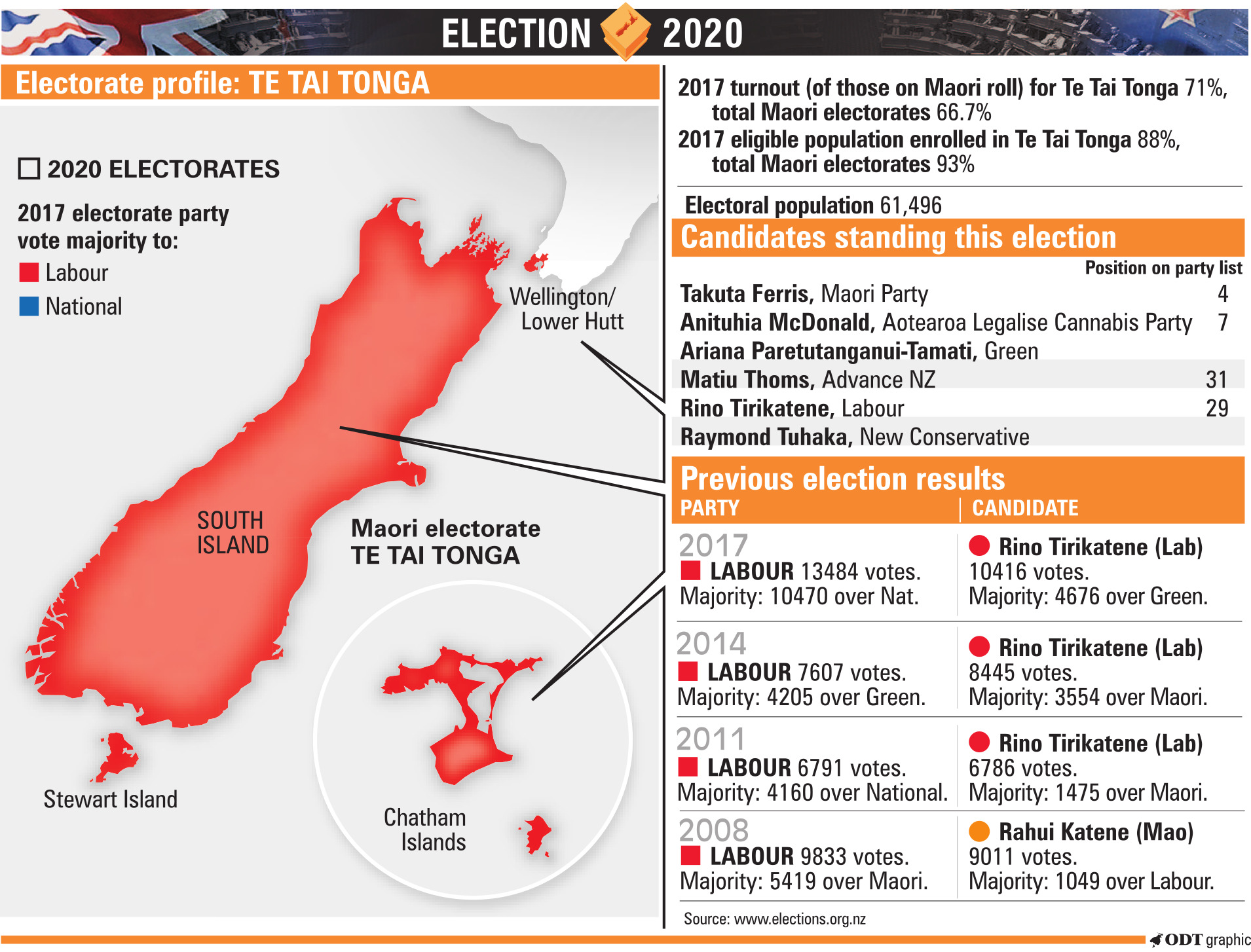
It takes stamina to campaign in Te Tai Tonga — at 151,723sq km, it is by far the biggest electorate in the country.
Encompassing the entire South Island, Stewart Island, the Chathams and a sizeable chunk of Wellington, Te Tai Tonga is a strikingly different seat demographically to the other Maori electorates.
Half the population is aged under 50, and more than two-thirds of registered voters also recognise as European, the highest in any of the Maori seats.
Just one in eight (12.6%) speak te reo — the national average is 18% — and for a demographic where religion can be of critical electoral importance, Te Tai Tonga has the highest share of voters who professed no religious affiliation, 63%.
In what is perhaps a reflection of the diversity of communities in Te Tai Tonga, it is an electorate which has changed hands several times since it was established in 1996.
New Zealand First, Labour and then the Maori Party held the seat until 2011, when Rino Tirikatene won the seat for Labour. He has held it since.
The main contribution Mr Tirikatene made in the latest Parliament was an unsuccessful attempt to have the status of the Maori seats entrenched in law.
He has no conspicuous record of achievement, but by the same token Mr Tirikatene has few failures on his CV, either.
While Mr Tirikatene did have a leg-up in winning Te Tai Tonga — his grandfather and aunt were the MP for the former Southern Maori seat for 64 years between them — it has not been all smooth sailing in this historically safe Labour seat.
In 2011, Mr Tirikatene was the happy beneficiary of the Maori Party and the Green Party splitting the opposition vote — their vote combined would have been a majority — and he also benefited from a similar division of forces in 2014.
The Green Party has always polled strongly in Te Tai Tonga, Dora Roimata Langsbury building the party’s vote in 2011 and 2014, before then party co-leader Metiria Turei increased it by nearly 9% in 2017.
Not to demean its 2020 candidate, Women’s Refuge national office employee Ariana Paretutanganui-Tamati, but — despite a long history of activism and involvement in both the Maori and Mana parties — she lacks the name recognition of Mrs Turei, and may well struggle to achieve a similar result.
Likewise, Maori Party candidate Takuta Ferris, the principal adviser Maori at Massey University, faces a tough task to make it to Parliament.
His party’s resources are squarely focused on Tamaki Makaurau and Te Tai Hauauru, which leaves Mr Ferris with the task of trying to boost the Maori Party’s party vote, not usually a target for its candidates.
This perceived weakening of the field suggests Mr Tirikatene should find election night 2020 a much more comfortable evening than in recent years.
Also standing are Anituhia McDonald (Legalise Cannabis), Raymond Tuhaka (New Conservative) and Matiu Thoms (Advance New Zealand).














